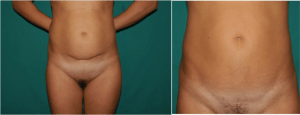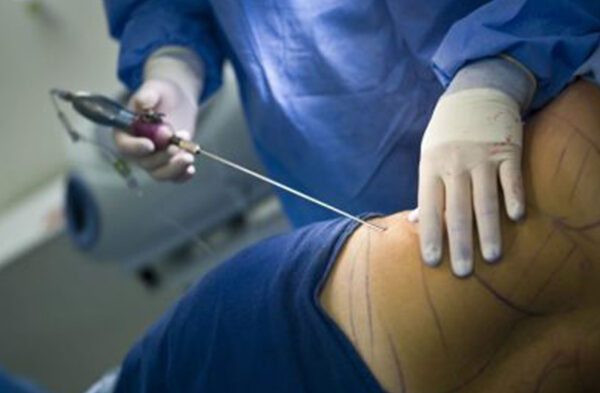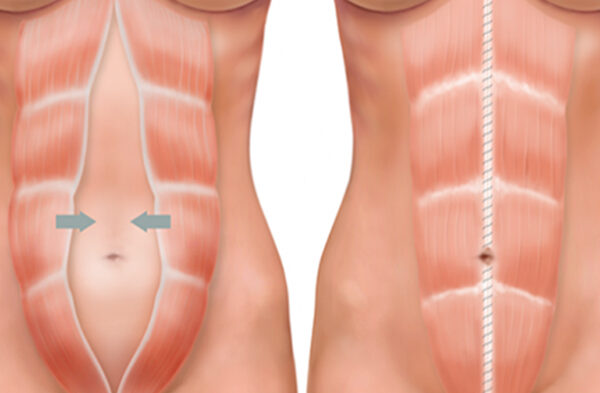TUMMY TUCK
WHAT IS TUMMY TUCK ? Dr Cappellina Cesare answers
Abdominoplasty or tummy tuck is the surgery that allows to correct deformities in the abdominal region. When the abdomen loses elasticity, due to the
accumulation of adipose tissue or pregnancy, lipoaspiration is not the most indicated procedure.
This surgical is therefore necessary.
WHO IS IT AIMED TO?
The abdominoplasty /tummy tuck surgery is mainly aimed to women patients with pregnancy outcomes, with or without cesarean delivery, and in cases of
sagging abdomen, or so-called apron.
The increase of abdominal pressure, in fact, pre-arranges for the relaxation of the muscular wall, causing the enlargement of the musculature, the
so-called abdominal diastasis.
WHAT SURGERIES CAN BE ASSOCIATED?
Abdominoplasty /tummy tuck can be associated with lipoaspiration, in order to thiner the belly to correct and improve body silhoutte, in this case we speak
of lipo-abdominoplasty. Furthermore, sometimes combined surgeries can be performed on all the other districts, the most common being the breast (breast augmentation and mastopexy) or the face (rhinoplasty, lifting)
INTERVENTION TIME: TWO HOURS
TYPE OF ANESTHESIA: GENERAL
DAYS OF STAY: ONE / TWO
RECOVERY TIME: EIGHT / TEN DAYS
WHAT IS THE SURGERY ABOUT?
The tummy tuck surgery lasts about two hours. General anesthesia is indicated. It can be associated with liposuction. Depending on the type of
abdomen, the scar can only affect the central portion, a few centimeters from the pubis (mini abdominoplasty) or extend laterally,
towards the hips (traditional abdominoplasty) with a scar so-called “bicycle handlebar”, as described by Professor Ricardo Baroudi of San
Paolo of Brazil, teacher of Dr. Diego Cappellina.
During the surgery, after performing the detachment, above the plane of the muscles sheath, the abdominal straight muscles muscles are sewn: often, in fact, due to an increase in the abdominal pressure, as in the case of pregnancy or the accumulation of fat, the muscular wall undergoes an exhaustion, which produces the so-called diastasis. With this tecnique we improve the function and the silhouette
The surgical technique, devised by Prof Ricardo Baroudi, adopted by us, involves a selective detachment, to preserve the lateral vessels, and
the use of a series of internal sutures, in order to close the space created after the detachment, between the raised abdominal flap and the
wall of the muscles.
The surgical technique is also called “quilting sutures” that is a ‘quit suture’, to describe the type of stiches. In this way drainages are not necessary.
The recovery after the surgery, thanks to this technical device, is considerably quicken, also the sense ofpsychological discomfort bounded to the drainings is decreased.
WHAT TYPE OF ANESTHESIA IS USED?
For classical abdominoplasty a general anesthesia is indicated. We used to do this procedure in Cappellina clinic
Selected cases of mini abdominoplasty, with a more limited detachment, can be performed with sedation under local anesthesia.
HOW LONG IS THE RECOVERY AFTER THE INTERVENTION?
After the surgery, the patient is accompanied to the hospital ward with a vescel catheter, which will be kept in place until the
following day. The average length of stay is two nights, it can be of one in case of mini abdominoplasty.
Then the patient is discharged, the medications are done twice a week at our clinic.
It is recommended to rest for 6 days, to help the healing process. The return to sporting activities is possible after about 40 days.
During the month following the surgery, the use of sheath is indicated.
ARE THE SCARS VISIBLE?
The scar falls about 5/6 cm from the pubis, consequently it is easily covered by clothing. It can be central, with a length varying from about 12/15 of the classic mini-abdominoplasty, until it extends laterally, below the hips.

Pre and postoperative: the scar falls about 5 cm from the pubis

Abdominoplasty case with correction of important abdominal hernia


